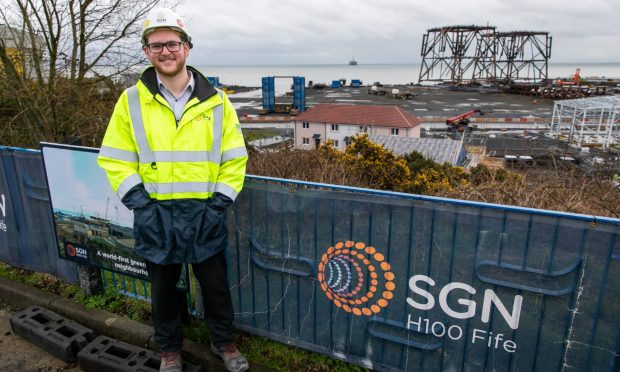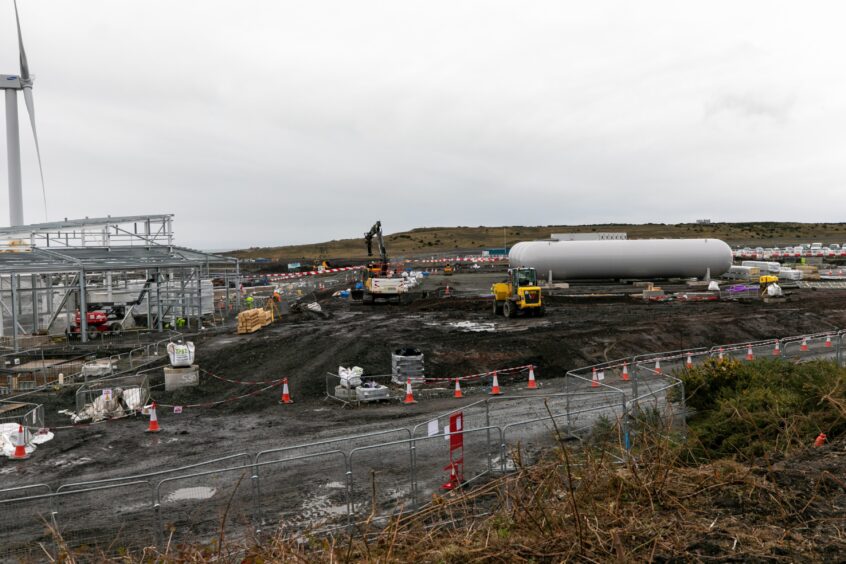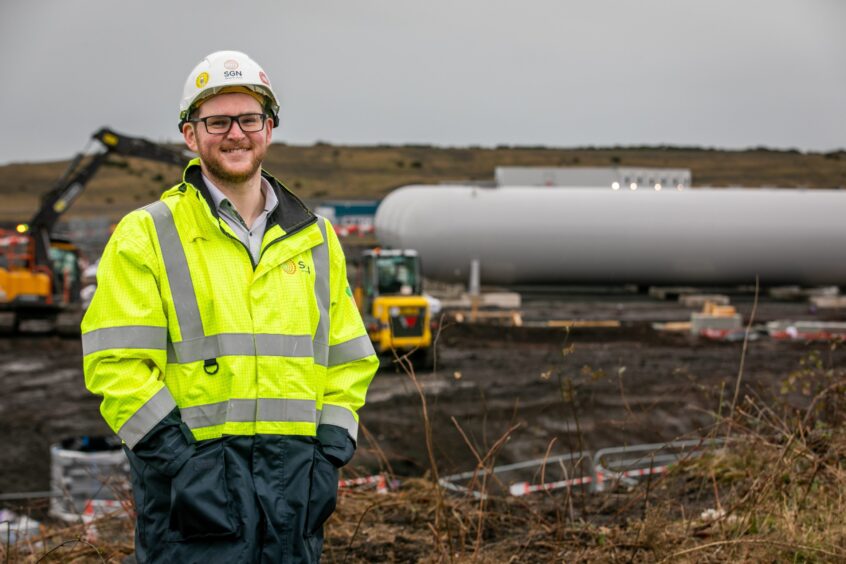A world-first green hydrogen gas network is currently taking shape in Fife.
British gas-distribution company SGN is leading the H100 project, which has the aim of going live at the end of 2024.
The hydrogen network will bring renewable hydrogen into homes, providing zero-carbon fuel for heating and cooking.
In the first phase, the network will heat around 300 local homes using clean gas produced by a dedicated electrolysis plant, powered by a nearby offshore wind turbine.
Project manager James Carroll said Buckhaven and Denbeath were chosen following a nationwide search for the most suitable site for this 100% hydrogen network.
Milestones
Mr Carroll highlighted various milestones already reached: “Over half of the 8.2km H100 Fife hydrogen network has now been laid. The entire network should be completed in August.
*The installation of the electrolyser, which will create the green hydrogen, has begun.
*Four out of six of the hydrogen storage vessels have now been installed. They will provide a constant source of hydrogen for even the harshest of winters.
*Three hydrogen demonstration homes have been constructed and appliances are currently being fitted.
James added that the project has an initial investment of £32 million, bringing jobs and opportunities to residents and businesses.
Hydrogen gas ‘kinder’ to environment
The project manager explained that green hydrogen gas is kinder to the environment than natural gas.
“18% of the UK’s greenhouse gases come from heating homes. As hydrogen doesn’t release CO2 when burned, it has potential to decarbonise both industry and domestic heating.
“Another key advantage when heating homes with hydrogen is that you won’t really notice any difference from using natural gas.
“You still have a boiler and radiators, and control the temperature in the home in the same way, so hydrogen heating will provide a familiar, responsive and easy way of keeping your house at a comfortable temperature.
“Switching to a completely different type of heating, such as an electric heat pump, will be right for some homes, but hydrogen will be more convenient for others depending upon up-front cost, space constraints in the home/garden or the level of disruption and time associated with installing a new heating system.
“We believe providing options to consumers is going to be vital in order to bring the public with us on the journey to net zero, so giving people the choice to use hydrogen, in addition to other technologies, will help maintain support for decarbonisation.
“22million homes in the UK are already connected to one of the world’s most advanced gas networks. Despite being invisible and under our feet, it’s more than 250,000km long and safely distributes huge amounts of gas all day every day. The industry has been upgrading the network over the past three decades. Today, much of the network is suitable for carrying hydrogen.”
So could hydrogen really replace natural gas?
James explained: “We’re working alongside the other UK gas networks and the UK and Scottish governments, to look into how we can repurpose the pipes we manage to safely deliver hydrogen instead of natural gas.
“Together, we’re building an evidence base for hydrogen which could shape the way we heat our homes in the future alongside other renewable technologies.
“UK Government will draw upon evidence from H100 Fife, a wide range of trials across Europe, and their broader research, development, and testing programme, to make a decision on the role of hydrogen for heat in the UK. This is expected in 2026.”
So what are SGN’s long-term plans for hydrogen as a heating fuel in the UK?
The project manager said: “We believe hydrogen has the potential to be part of a whole systems approach for decarbonising home heating, which gives customers a choice on how they heat their homes and utilises a mix of green gas, electric and hybrid solutions.
“If hydrogen for heating is progressed, all the main boiler manufacturers have developed hydrogen-ready appliances, which could be converted to run from natural gas to hydrogen in less than half a day, making the switch to clean heating very quick and easy for households.
“We also believe hydrogen for heat could provide a route to decarbonising industrial and commercial demand, keeping good-quality jobs and clean manufacturing here in Scotland and the UK, while supporting a just transition.”












